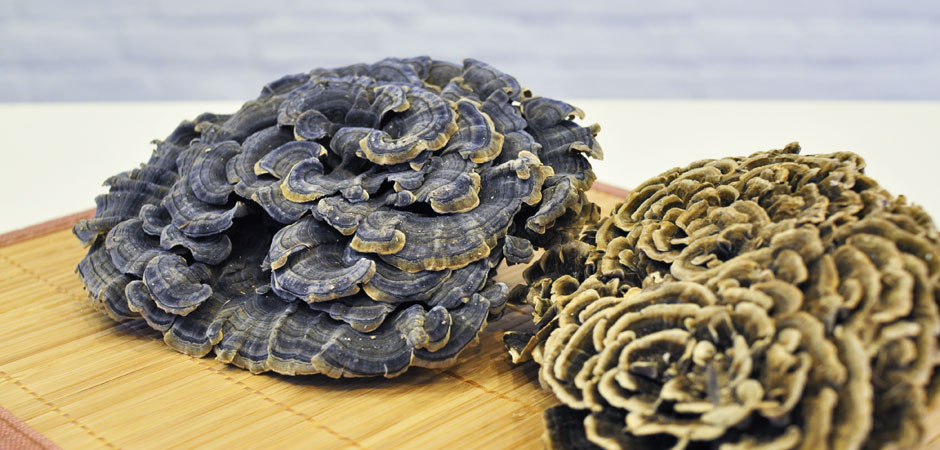Hepatitis B
How to Protect Yourself And Your Child Against Hepatitis B
Posted on 7 Nov 2022

Hepatitis B is a dangerous, potentially life-threatening infection that attacks the liver. It can be spread from mother to baby during childbirth or by coming into contact with fluids from an infected person.
While the infection is preventable by a vaccine, newly infected individuals do not always show symptoms. This makes it easier for the infection to cause more damage before you may even realize there is a problem.
This guide explains everything you need to know about hepatitis B, including the causes, symptoms, and treatment options. Our physicians also provide tips for protecting yourself and your child against liver damage.
What Is Hepatitis B?
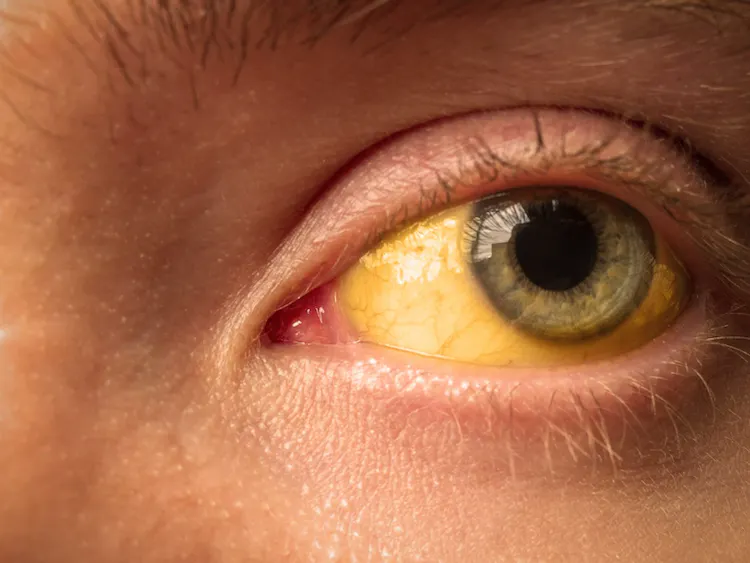 Yellow eyes may be a symptom of hepatitis infection.
Yellow eyes may be a symptom of hepatitis infection. Hepatitis B is a potentially severe liver infection caused by the hepatitis B virus (HBV). It can cause both acute and chronic diseases that may put you at an increased risk of death from cirrhosis and cancer. Having hepatitis B can also put you at an increased risk for other diseases like hepatitis D.
The condition affects over 300 million people and is 98% to 100% preventable by a vaccine. Among children, it is most commonly spread from mother to child during childbirth. It can also be spread through exposure to infected blood, including when an infected child’s blood or fluids come into contact with an uninfected child.
Hepatitis B can also be spread in adults by sharing needles with an infected person or by exposure to bodily fluids through sexual interactions. This includes saliva, and menstrual, seminal, and vaginal fluid. It’s common among unvaccinated adults who have multiple sexual partners.
Health risks
In adulthood, the infection leads to a chronic condition in less than 10% of patients. However, approximately 95% of children and infants who become infected may develop chronic hepatitis. This is why most pediatricians in America recommend that children get vaccinated.
The hepatitis virus can live outside of the body for seven days. This means that the virus can still cause infection if it enters the body of an unvaccinated person. The virus can be detected 30 to 60 days after infection, where it is more likely to turn into a chronic condition – especially in children.
Symptoms
Symptoms do not tend to develop in newly infected people. This makes it difficult to detect. However, some people may experience symptoms that last for several weeks, including:
- Yellowing of the eyes (jaundice) or skin
- Dark urine
- Nausea and vomiting
- Extreme fatigue
- Abdominal pain
- Lack of appetite
Long-term symptoms may include advanced liver diseases, such as hepatocellular carcinoma (liver cancer) and cirrhosis. When left untreated, these conditions may lead to death or liver failure.
What Is The Difference Between Hepatitis B And C?
In general, hepatitis refers to a virus that causes liver inflammation. Hepatitis B and C infections can cause short and long-term effects. However, hepatitis C is more likely to become a chronic condition. Additionally, there is no vaccine available.
A person can transmit hepatitis B through bodily fluids, while the transmission of hepatitis C usually only occurs through blood-to-blood contact.
Why Is Liver Health Important?
According to Traditional Chinese Medicine (TCM), Liver health plays a large role in the development of disease. We asked TCM Physician Lim Sock Ling to explain.
“From a TCM point-of-view, the Liver is responsible for Qi regulation and emotional health as well as the well-being of other organ systems. TCM believes each emotion is associated with an organ system. Good flow of Qi ensures Blood circulation is smooth and helps in water metabolism. The regulatory role of the Liver also helps the absorption and assimilation of the Spleen, which contributes to a healthy gastrointestinal system,” explained Physician Lim.
“In addition, the Liver is responsible for storing Blood and supporting women’s health. Females depend heavily on the supply and circulation of Blood in their life such through menstruation, pregnancy, childbirth, and breastfeeding,” continued Physician Lim.
How To Tell If Your Child’s Liver System Is Compromised
From a TCM point of view, poor Qi circulation in children can manifest as gastrointestinal discomforts, such as a bloated stomach, flatulence, poor appetite, pain in the ribs area, and fatigue. Young girls at puberty age may experience breast tenderness and blood clots during their period as well as mood swings.
Being angry often will cause Liver Qi to become stagnated. Sleeping late will deplete the Liver Yin. Over time, the Blood reduces the Liver’s ability to detox. According to Physician Lim, sleep is important because this is when toxins are released from the body and new blood is formed.
Therefore, if your child is not sleeping well, is easily angry, and exhibits other symptoms, you may want to have them checked. Also, check their history to see if there was possible recent exposure to fluid, needles, accidents, etc. As Liver failure worsens, these symptoms may occur:
- Dark urine
- Jaundice
- Itching and bruising easily or prolonged bleeding
- Swollen abdomen from fluid build-up
- Cognitive problems, such as being confused, irritable, or lethargic
Tips For Preventing Hepatitis B Infection
Physician Lim states that a person can reduce their risk of hepatitis B transmission by getting the vaccine. In addition, you should wash your hands thoroughly with soap and water after potential exposure to blood.
Parents should be attentive and cover all cuts on their children carefully to prevent infection. Avoid sharing sharp items, such as nail clippers, toothbrushes, and earrings. Young girls should discard sanitary products properly.
How To Best Support Liver Health
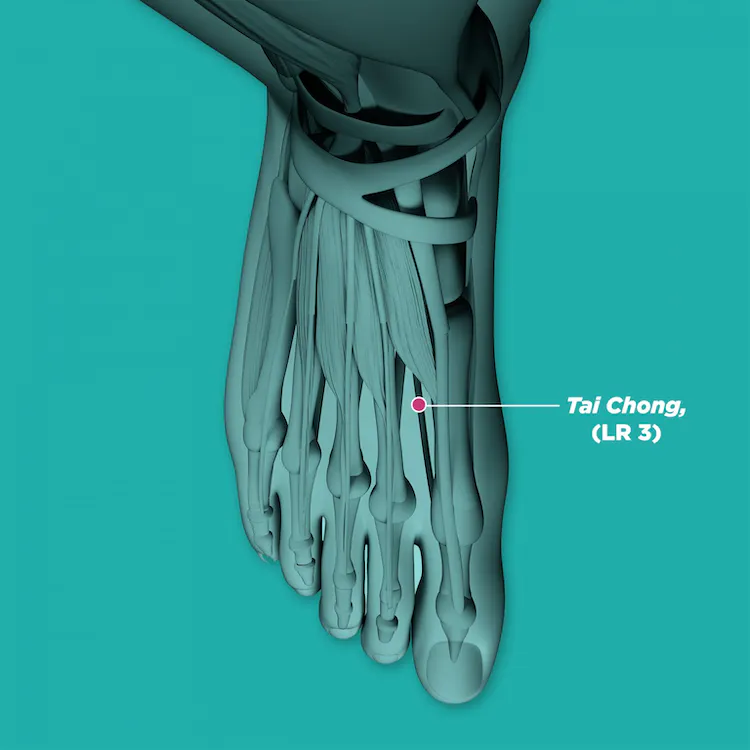 Tai Chong (LR3): located on the dorsum of the foot, in the depression of the first metatarsal space. Stimulating this acupoint may help support Liver health.
Tai Chong (LR3): located on the dorsum of the foot, in the depression of the first metatarsal space. Stimulating this acupoint may help support Liver health. There are plenty of TCM remedies you can include in your wellness routine to support Liver health. We asked Physician Lim to share some. Here is what she suggested:
Goji berries, Schisandra fruit (Wu Wei Zi) has anti-inflammatory properties that can nourish the Liver
Chrysanthemum and artichoke that clear Liver Heat and promote bile production and urination
Ginger nourishes the Blood, improves circulation, and has antibiotic and antibacterial effects to help the body cleanse and fight pathogens
Chai Hu Shu Gan powder or Xiao Yao San are formulas that are often used to ease Liver Qi so that it flows smoother to support the gastrointestinal system.
Additionally, research shows that Wild Yunzhi may help boost Liver function. According to one study, Yunzhi may be used to assist those with poor liver function or who are unfit to receive standard therapy for Liver diseases.
Although bird’s nest is traditionally used to improve Lung, gastric, and Kidney functions, some studies show that it can help to protect against Liver injury. Children can be given it as it tastes good.
Acupressure and acupuncture on the acupoint Tai Chong (LR3) can also help improve Liver Qi circulation. It is located on the top of both feet, in between the first and second metatarsal bones.
As always, talk to your doctor or a registered TCM physician if you think you or your child has hepatitis B. Never try to self-medicate as Liver infections may lead to life-threatening complications.
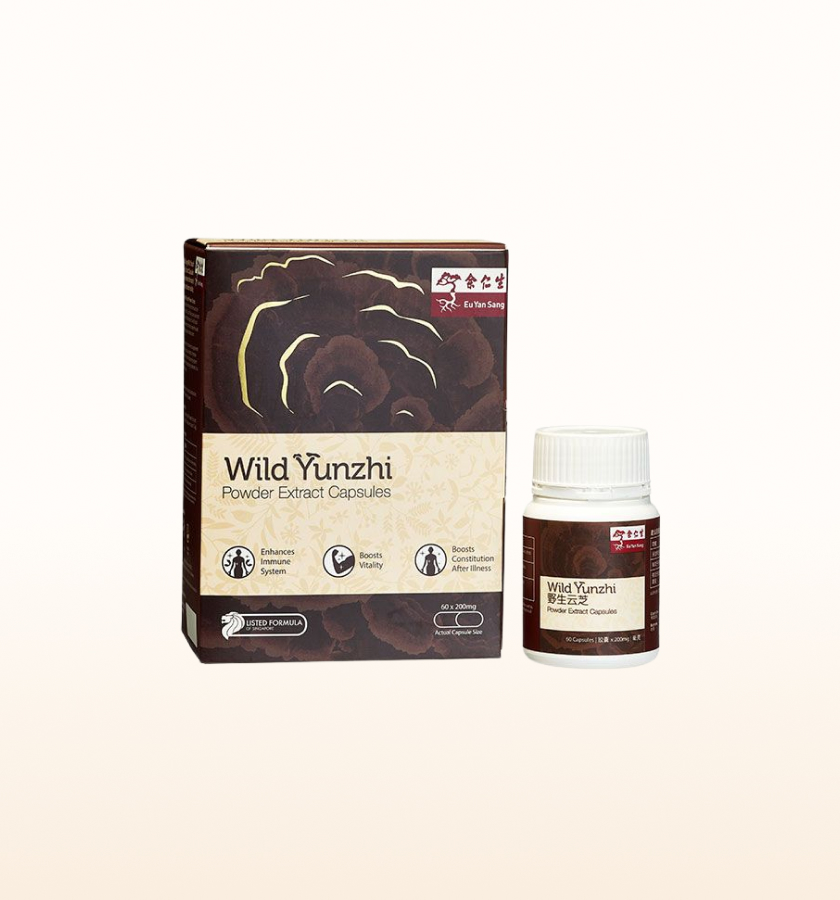
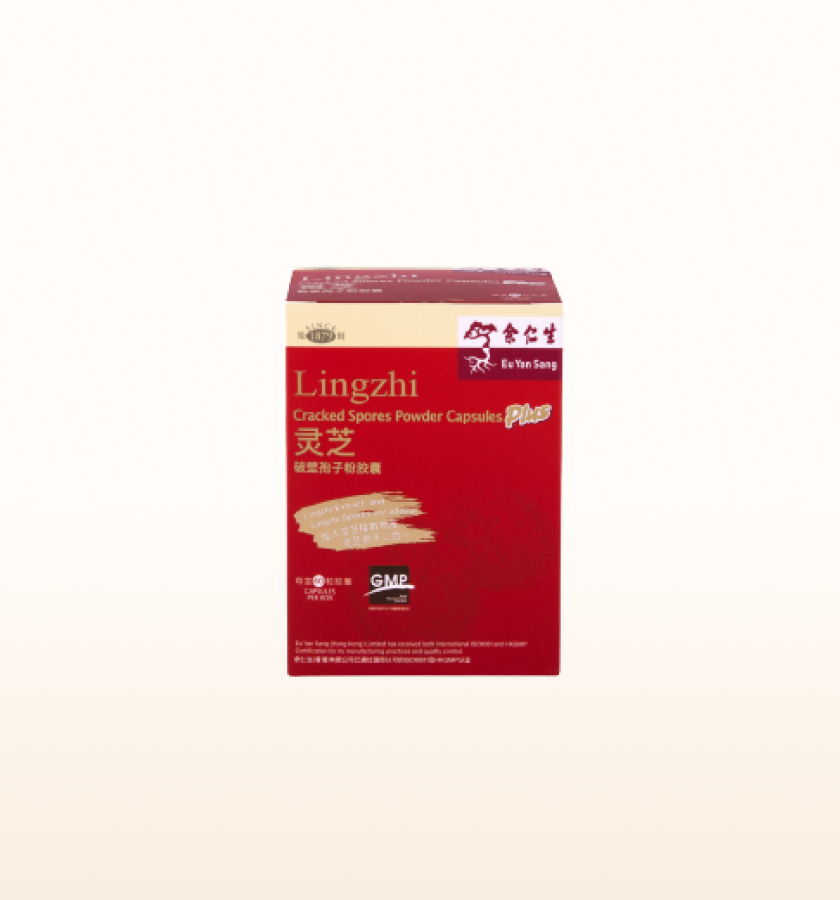
.png)
